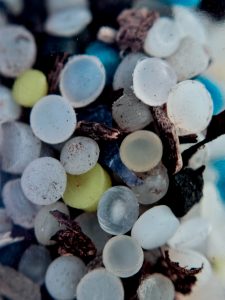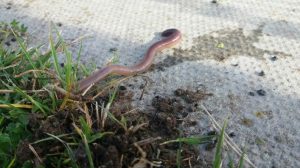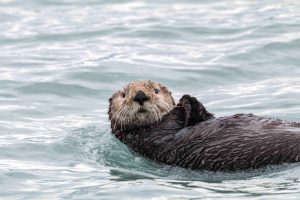Even in these dark times, the variety of life on earth gives us a lot to celebrate this Biodiversity Day. Recently many of us have been developing an even greater appreciation of the nature on our doorstep, whether it is spotting a fox from your flat, watching a bee visit a dandelion or listening to birdsong outside your window. These encounters with the wild are helping to keep us grounded in a rapidly changing world. And as we have been getting closer to nature, nature has got closer to us, with some species venturing closer to our homes than ever before. Deer are wondering between unused office blocks, ducks dawdling down high streets and wildflowers emerging in empty car parks. But as the roads get busier and our shopping habits pick up again, we need to remember our new-found neighbours and turn our connection with nature into practical steps to save it.
Here at Fidra that means finding pragmatic solutions to one of the greatest challenges nature faces: pollution. With our focus on plastic and and chemical pollution we are tackling these problems at source.
Seabirds, otters and polar bears

We are working to end the use of forever chemicals, PFAS, in food packaging because these industrial chemicals leak out during production, use and disposal and pose a risk to wildlife and people. PFAS last for thousands of years and build up in food chains, they already impact the immune systems of otters and the brains of polar bears. To stop seabirds and turtles swallowing plastic stems we have worked with retailers, manufacturers and governments to swap plastic cotton bud stems to paper, so hopefully one day soon this plastic will stop showing up in seabirds’ stomachs.
Many pollutants are easy to overlook. Even when shoppers are interested in how and where their purchases are produced, they can’t find out about environmental impacts. Our recent survey of shoppers shows that when picking up a packet of salmon you can’t find out about the polystyrene fish boxes & chemical treatments used, partly because consumers don’t even know that the salmon was farmed, let alone where it is from and how many chemicals and plastics were used along the way. We think this needs to change, with better labelling and more accessible information allowing consumers to make sustainable choices.
Unless you have been on a nurdle hunt, you probably won’t have seen the plastic pellets called nurdles that leak out of the plastic supply chain before a product is even made, but they look like fish eggs and turn up in the stomachs of fish, puffins and on beaches worldwide. We are working with industry, government and communities around the world to highlight the issue and encourage steps across the plastic supply chain to handle nurdles responsibly.
Earthworms and hoverflies
 But our projects don’t just help the charismatic creatures like polar bears and puffins. We’re working to stop microplastic leaks from artificial pitches, which will benefit the humble earthworm and other soil inhabitants. The plastic infill on artificial pitches is made from old tyres and this plastic (along with the toxins in it) leaks into surrounding soils. This plastic even finds its way into fish in nearby rivers.
But our projects don’t just help the charismatic creatures like polar bears and puffins. We’re working to stop microplastic leaks from artificial pitches, which will benefit the humble earthworm and other soil inhabitants. The plastic infill on artificial pitches is made from old tyres and this plastic (along with the toxins in it) leaks into surrounding soils. This plastic even finds its way into fish in nearby rivers.
We’re tackling the invisible threats to wildlife too, such as toxic chemicals used in polystyrene, paper and plastic packaging. Bisphenols and other harmful chemicals are being banned in other countries and products, but are found in your pizza box and the receipt you got with it. These chemicals interfere with the hormones of people and wildlife and are considered toxic to reproduction. Thankfully, many of these chemicals don’t need to be there and some retailers are already rolling our alternatives.
Neighbours to nature

Even during this global crisis, retailers, takeaway chains, industry, investors, policy-makers and people around the world are getting in touch and talking to us about the steps they can take to help eliminate pollutants from their products and supply chains. This gives us all hope for a green recovery.
Reducing the burden of plastic and chemical pollution will benefit our health and the environment. You can help by going on a nurdle hunt (when it is in line with government advice), signing our petition to get PFAS out of food packaging and even by saying no to receipts and the bisphenol chemicals in them.
It feels like many plants and animals have entered our lives at the time we need them most. We can return the favour and make a positive impact on nature. By tackling the threats our environment faces, our connection with wildlife can sustain people and nature for years to come.
